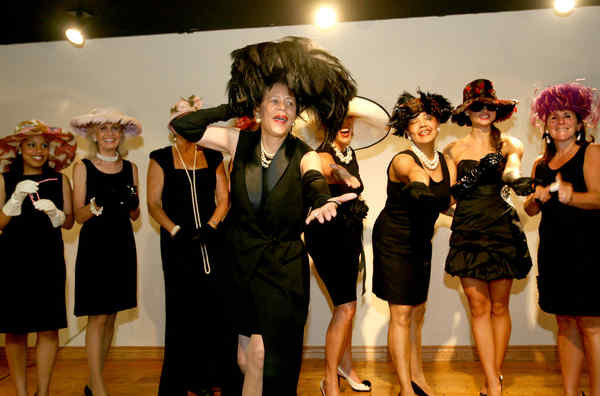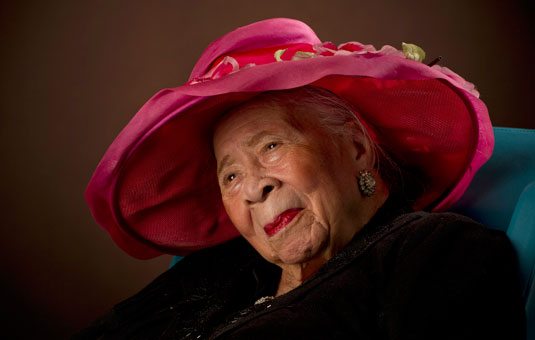
Good Morning POU!
No, I did NOT know the proper name for a hat designer was “Milliner”. Well, as you know, the African American community has a very storied history with hats. Hats are statements. Hats tell a story. This week, let’s honor the great Milliners of our history!
In April 2009, the Smithsonian’s National Museum of African American History and Culture (NMAAHC) acquired part of legendary hat designer Mae Reeves’ extensive hat collection, antique furniture from her millinery shop and other personal items to tell the story about her illustrious career.
Reeves, now 99, recently discussed her contributions to the fashion world in a special interview conducted by her daughter, former NPR documentary producer Donna Limerick and NMAAHC representatives. Her 50-year collection will be part of a permanent fashion exhibit at the museum, expected to open in 2015.
“It’s a typical American story and as a museum that tells the American story from a Black perspective, Black businesses play some extent in that,” said Michele Gates Moresi, NMAAHC curator of collections. “And also, the issue of gender and that women are represented enough and given their due in the museum, so doing Black women’s businesses certainly makes a lot of sense.”
During the early 1930s, Reeves attended the Chicago School of Millinery where she learned how to shape hats with special molds, using steam and wires to hold the shapes. Her goal was to learn the art of making handmade hats and her favorite work was decorating the hats with unusual feathers, flowers, bows and other materials. “A hat expresses something special about a woman’s personality,” said Reeves. “I try to make one-of-a-kind hats so my customers don’t have to worry about going out and seeing themselves somewhere else. You never want to see another woman wearing the same hat that you have on.”

On a 1934 visit to her brother in Philadelphia, Reeves decided to make the region her home. While working sales at Seymour’s Ladies Apparel Shop on South Street in 1936, the owner taught Reeves business skills such as how to buy the stock, manage the shop and decorate the windows. At age 28, Reeves secured a $500 bank loan from the Citizens and Southern Bank (also on South Street) and in 1940, opened Mae’s Millinery Shop at 1630 South St.
By 1953, Reeves’ business had grown substantially. At that time the 60th Street area of West Philadelphia had many prosperous businesses, Woolworth’s 5 & 10 store, several banks, other women’s and men’s apparel shops and shoe stores – all run by white businessmen. The hat designer soon found the perfect place for her new shop at 41 N. 60th Street and became the first African-American woman to own a business on 60th Street corridor.
It was at the 60th Street location where Reeves designed and created some of her most magnificent hats, including her famous turbans, feather and veil hats. Customers came from as far north as Boston and as far south as Virginia to order her special creations. Over the next 30 years her customers included Mrs. Philip DuPont, Mrs. Walter Annenberg, women from the Biddle family, the Honorable C. DeLores Tucker and many others who became friends and customers. To accommodate customers, Reeves traveled to New York and Paris to find the best materials of silk, feathers, ribbons, flowers, velvet and ornaments for her ladies hats.

By the 1970s, the world of fashion changed drastically as women began to wear bouffant hairstyles, wigs and Afros hats were no longer fashionable, except with older women. Reeves kept the shop open until 1997, retiring when she was 85-years-old. In 2003, at age 91, Reeves moved to Darby, Pa., where she now resides.
“I always encourage my customers to wear hats that make a statement about fashion and themselves,” said Reeves. “I love women to wear hats because it makes them look so pretty. You know, on days when you feel you need a lift hats are a good way to boost your morale. Every woman should have at least one special hat they can put on strut out the door and say, ‘Here I am, world. I feel good and I know I look good.”

Construction of the National Museum of African American History and Culture (NMAAHC) is scheduled to begin on the Mall in 2012 and completed in 2015.

